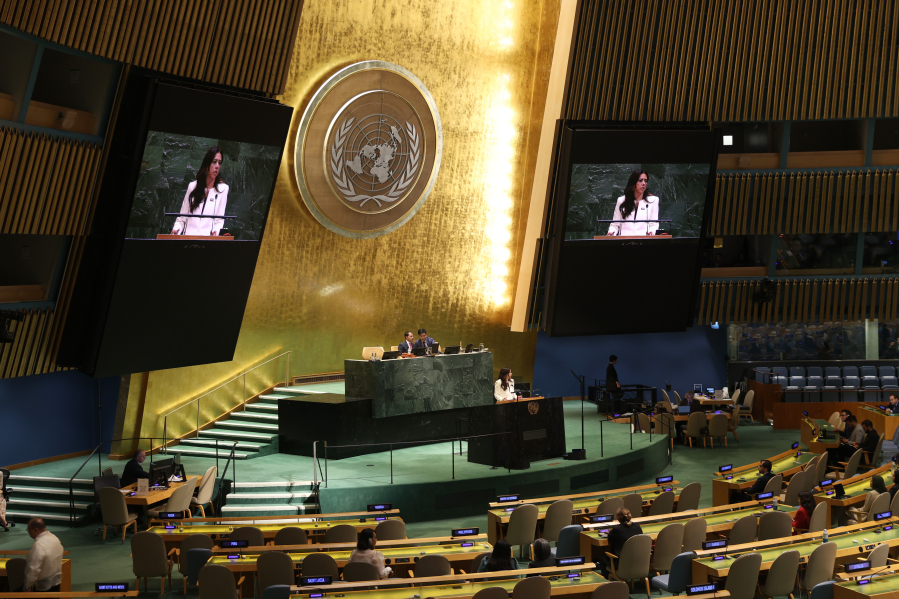
During the annual gathering of world leaders at the United Nations, representatives from Egypt, Saudi Arabia, the United Arab Emirates, and Oman addressed the escalating unrest in the Middle East. Badr Abdelatty, Egypt’s Foreign Minister, issued a stark warning that the region “is at a point of implosion” due to the ongoing violence, particularly in Gaza. The comments came as the four nations condemned Israel’s military actions and highlighted the dire humanitarian situation affecting Palestinian civilians.
Calls for Ceasefire and Accountability
The ministers expressed deep concern over the failure of the international community, including the United Nations, to facilitate a ceasefire and end the conflict. Their statements followed a speech by Israeli Prime Minister Benjamin Netanyahu, who reiterated Israel’s commitment to continue military operations against Hamas in response to its surprise attack on October 7, 2023, which resulted in approximately 1,200 Israeli deaths and the abduction of 250 hostages.
Abdelatty criticized the global community for remaining “idly by as a spectator” while systematic violations of international law occurred in Gaza and beyond. He accused Israel of waging a “wanton, unjust war” against civilians, asserting that accountability is necessary to prevent further escalation of violence. He emphasized that Israel’s security is intertwined with the stability of its neighbors, stating, “the region cannot see stability without an independent state of Palestine.”
Abdelatty also referenced historical efforts for peace, recalling former Egyptian President Anwar Sadat’s landmark visit to Israel in 1977, which marked a significant step toward peace in the region. He lamented the current state of affairs, where the prospects for Palestinian statehood remain bleak.
Humanitarian Crisis and the Path to Peace
In addition to the Gaza conflict, the ministers outlined other pressing regional issues, including the civil war in Sudan, the political deadlock in Libya, and the ongoing crisis in Yemen. The situation in Yemen involves a struggle between the internationally recognized government and Houthi rebels who control the capital and much of the north.
Prince Faisal bin Farhan, the Foreign Minister of Saudi Arabia, highlighted the unprecedented humanitarian crisis in Gaza, calling it critical for the international community to intervene and facilitate peace. He asserted that a two-state solution to the Israeli-Palestinian conflict is the only viable path to ensure security for all nations in the region. “The failure of the international community to take firm actions to end the Israeli aggression will only cause further instability and insecurity regionally and globally,” he stated, warning of severe consequences if the situation remains unchecked.
In an effort to promote peace, Saudi Arabia, alongside Norway and the European Union, has initiated an international coalition aimed at implementing the two-state solution. This coalition seeks to address the long-standing conflict and establish a framework for lasting peace in the region.
The discussions at the UN highlight the urgent need for international engagement and accountability as the Middle East grapples with profound instability and humanitarian crises. The warning from Egypt underscores the critical juncture at which the region stands, with the potential for further unrest if decisive action is not taken.






